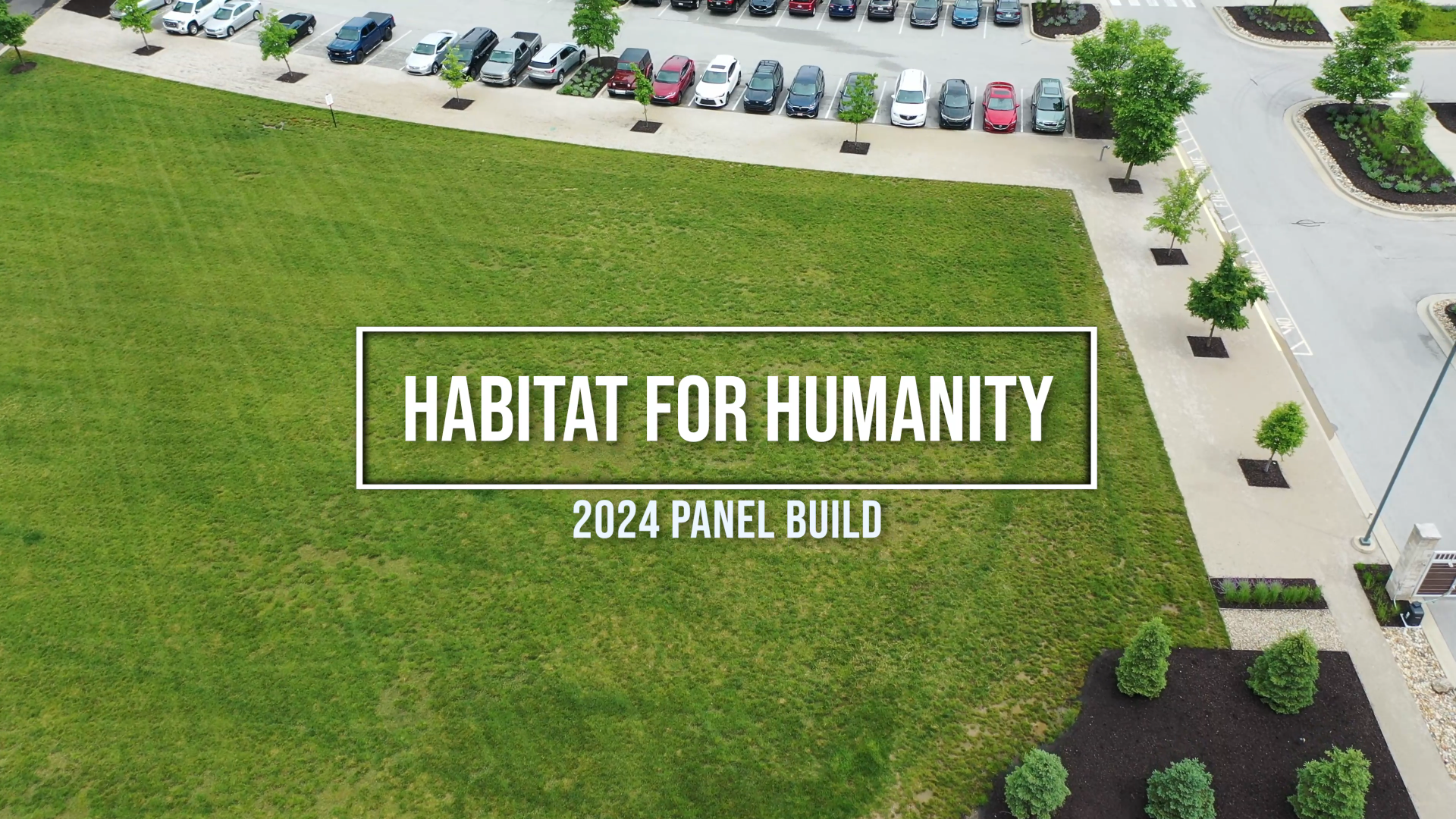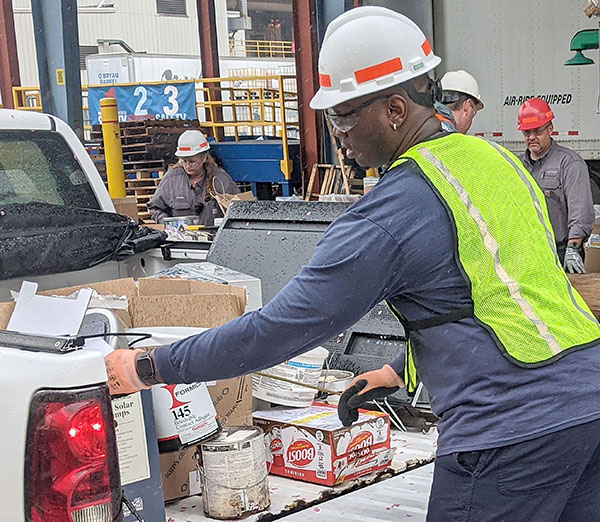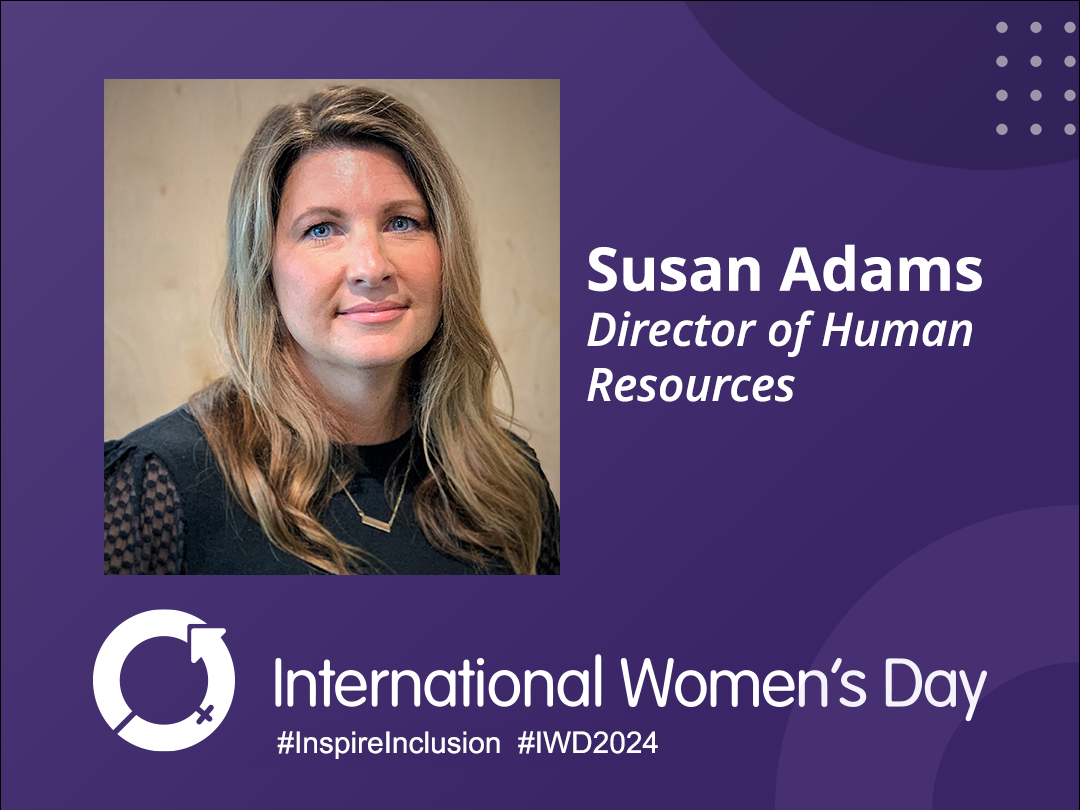If your sites generate potentially hazardous wastes, it is imperative that you make a hazardous waste determination for each and every waste generated. The determination process, also called the hazardous waste identification (HWID) process, is one of the first and perhaps the most important steps for properly managing waste materials. To make a proper waste identification a generator must ask four questions:
- Is the material a solid waste?
- Is the waste specifically excluded from RCRA?
- Is the waste a listed hazardous waste?
- Does the waste exhibit a characteristic of hazardous waste?
“Making a proper waste determination is key to maintaining RCRA compliance,” Kristine Nelson, HSE Training Coordinator at Heritage Environmental Services, said. “Once you’ve completed your waste determination, you can then properly determine how to manage your waste when it comes to storing, labeling, packaging, transporting, and ultimately disposing or recycling your waste.”
In today’s feature, we’ll dig deep into each of the questions identified above. You can also check out in-person and online Environmental Compliance Training courses through Heritage Environmental Services, designed to prepare generators for facilitating compliant storage and disposal of any wastes generated, to learn more.
Is the material a solid waste?
In order to answer the first question, 40 CFR Part 261.2 defines materials that are solid wastes and those that are not solid wastes. RCRA §1004(27) defines a solid waste as, “any garbage, refuse, sludge from a wastewater treatment plant, water supply treatment plant, or air pollution control facility, and other discarded material, including solid, liquid, semisolid, or contained gaseous material, resulting from industrial, commercial, mining, and agricultural operations and from community activities.” Certain materials may be excluded from the definition of solid waste under §261.4(a).
Additionally, the EPA provides several tools, including a Definition of Solid Waste (DSW) decision tool that can help walk you through this first step.
Is the waste specifically excluded from RCRA?
There are some types of solid wastes that the EPA excludes from the definition of hazardous waste. These materials, regardless of meeting a listing or exhibiting a characteristic of hazardous waste, cannot be considered a hazardous waste. According to §261.4(b), excluded wastes include:
- Household hazardous waste
- Agricultural waste
- Mining overburden
- Fossil fuel combustion waste (Bevill)
- Oil, gas, and geothermal wastes (Bentsen Amendment)
- Trivalent chromium wastes
- Mining and mineral processing wastes (Bevill)
- Cement kiln dust (Bevill)
- Arsenically treated wood
- Petroleum contaminated media & debris from underground storage tanks
- Injected groundwater
- Spent chlorofluorocarbon refrigerants
- Used oil filters
- Used oil distillation bottoms
- Landfill leachate or gas condensate derived from certain listed wastes
- Project XL pilot project exclusions
- Solvent-contaminated wipes
Many of these exclusions are conditional and often specific to an industry or type of waste. Careful reading of the conditional exclusions is necessary when making these hazardous waste determinations.
Kristine, who is also an instructor for Heritage Environmental Services’ Compliance Training programs, reiterated the importance of fully understanding each wastestream managed. “Understanding what type of waste you have and what exclusions are available can sometimes help you find alternative, more sustainable and cost-effective ways to manage your wastestreams,” she said.
Is the waste a listed hazardous waste?
The EPA has studied hundreds of different wastestreams and listed the wastes accordingly. Listed wastes are described or listed on four different lists that can be found at 40 CFR 261, Subpart D. These four lists are:
- The F list— The F list designates certain solid wastes from common industrial or manufacturing processes as hazardous. Because the processes producing these wastes can occur in different sectors of industry, the F list wastes are known as wastes from non-specific sources. The F list is codified in the regulations at §261.31.
- The K list— The K list designates certain solid wastes from specific industries as hazardous. K list wastes are known as wastes from specific sources. The K list is found at §261.32.
- The P list and the U list— These two lists are similar in that both list pure or commercial grade formulations of certain specific unused chemicals as hazardous. Both the P list and U list are codified in §261.33.
Does the waste exhibit a characteristic of hazardous waste?
There are four characteristics of hazardous waste. These characteristics help us understand how the waste poses a danger to the environment. The four characteristics are ignitability, corrosivity, reactivity, and toxicity.
How can Heritage help you?
Did you find this brief explanation of Hazardous Waste Determinations helpful? Our environmental compliance training offers comprehensive training programs for both personnel new to the industry and seasoned professionals.
Our trainings cover the foundation of the regulations, generator requirements, and focused topics including the generator improvement rules, the new pharmaceutical management rules, and aerosols as a universal waste. We ensure all attendees are receiving the most up to date regulatory compliance training.
Can’t make it to one of our 14 in-person trainings throughout the country? We also offer six virtual webinars to ensure you have every opportunity to stay up to date and compliant with RCRA training requirements.
More News From Heritage
-
6/27/24
Heritage Environmental Services to Acquire EBV from General Dynamics
Heritage Environmental Servicess, an EQT Infrastructure portfolio company, will acquire EBV from General Dynamics
-
6/13/24
Meet The Facilities – East Liverpool
An inside look at our incineration facility located in East Liverpool, OH
-
5/24/24
Habitat for Humanity 2024
Heritage hosted our 14th annual Habitat for Humanity build this month, partnering with over 50 employees from various THG companies.
-
5/6/24
Date set for the household hazardous waste collection in East Liverpool, Ohio
-
3/12/24
Equal Pay Day – Spotlighting Our Female Drivers
-
3/8/24
International Women’s Week Spotlight – Shannon Dippel
For International Women's Week, we're spotlighting some of the incredible women in the Heritage family. Our final spotlight is Shannon Dippel.
-
3/8/24
International Women’s Week Spotlight – Susan Adams
For International Women's Week, we're spotlighting some of the incredible women in the Heritage family. Our sixth spotlight is Susan Adams.
-
3/7/24
International Women’s Week Spotlight – Lea Wilson
For International Women's Week, we're spotlighting some of the incredible women in the Heritage family. Our fifth spotlight is Lea Wilson








